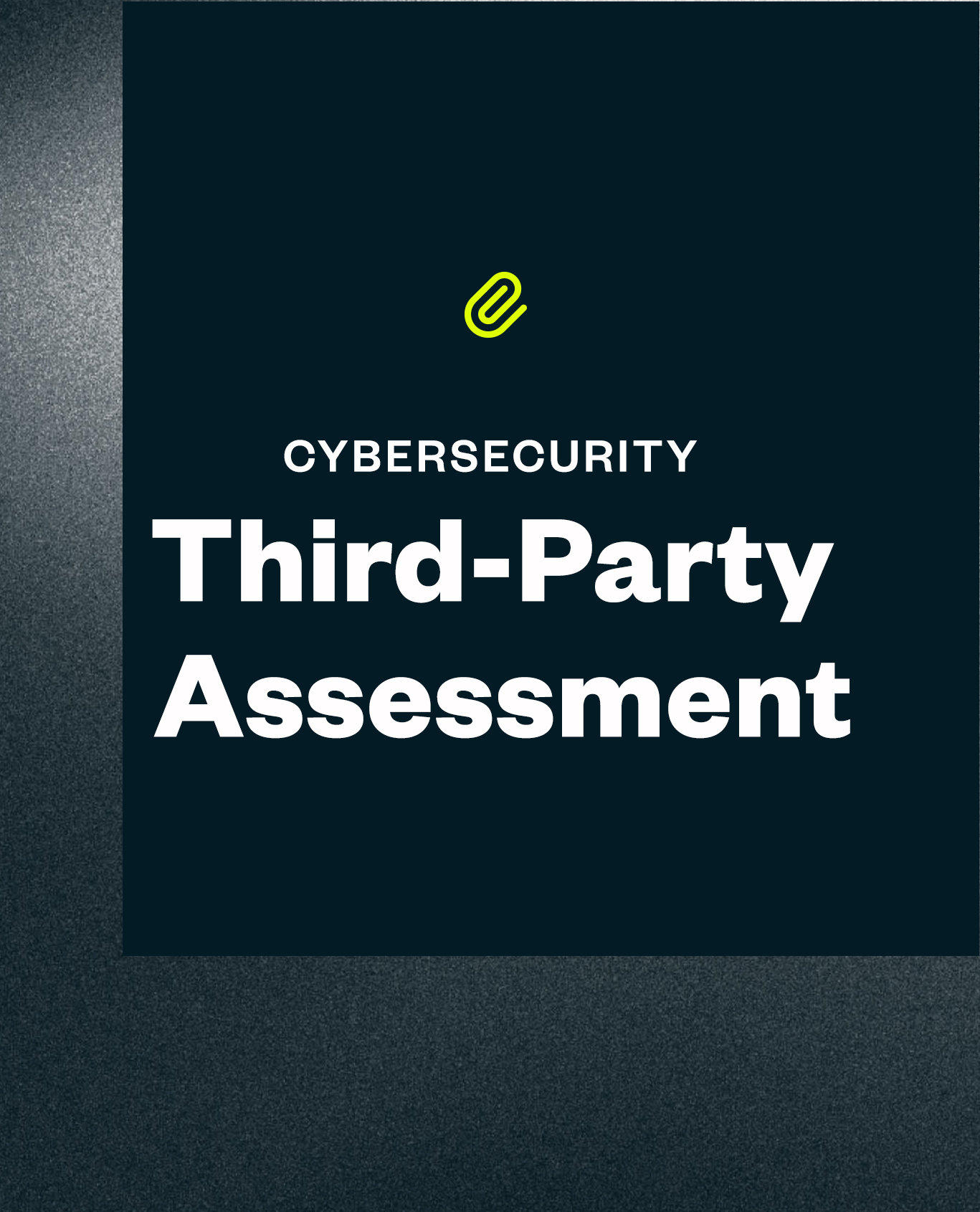Why You Need a Third-Party Assessment for Cybersecurity

In the realm of cybersecurity assurance, the stakes have never been higher. The sophistication of cyber threats is increasing, which can cause significant financial and reputational damage. To combat these threats, organizations must ensure that their cybersecurity measures are robust, effective, and compliant with relevant third-party and regulatory standards.
Traditionally, many organizations utilize self-assessments to attest to their cybersecurity compliance. However, recent events such as the Penn State University case, have cast a shadow of doubt over the reliability and credibility of these self-assessments.
While self-assessments can be the initial introduction to a compliance journey, we believe in the value of third-party assessments for cybersecurity assurance. Keep reading to learn why third-party evaluations are not just preferable, but essential.
The Limitations for Self-Assessments
Objective Scrutiny
Self-assessments, by their very nature, lack external validation. Even with the best intentions in mind, an organization may unintentionally overlook their own vulnerabilities or be biased in its evaluation. After all, it’s like grading your own homework – people are more likely to give themselves the benefit of the doubt or be less harsh when reviewing their own work. A third-party assessment brings an objective lens to the compliance process, ensuring that evaluations are free from internal biases. With the help of an external partner, organizations can be confident that no stone is left unturned.
Expertise and Specialization
Many third-party assessors specialize in cybersecurity evaluations and keep up to date with the latest threats, vulnerabilities, and best practices. Working with a trained and experienced team ensures a thorough and comprehensive assessment based on current standards. Internal teams are often juggling many responsibilities and may lack the know-how of an audit team that is steeped in compliance trends on a daily basis. When it comes to something as serious as cybersecurity, it is worth it to bring in best-in-class experts.
Credibility and Trust
In the eyes of stakeholders, including clients, partners, and regulators, a third-party assessment carries more weight than any you could complete internally. It signals that the organization is serious about its cybersecurity posture and is willing to have its defenses scrutinized and improved with feedback from external experts. A third-party assessment can help organizations build trust and credibility with their customers, backed by an unbiased audit team.
Legal and Regulatory Defensibility
Should a security breach occur; a recent third-party assessment can provide a strong defense in legal and regulatory scenarios. A quality assessment, performed by a trusted audit partner, demonstrates due diligence and a proactive approach to cybersecurity. Of course, the goal of any cybersecurity program should be to prevent breaches in the first place, but even the most prepared organizations still find themselves in difficult situations. With the backing of a third-party evaluation, organizations may be able to mitigate penalties associated with a security breach and minimize reputational damage.
Continuous Improvement
Cybersecurity compliance should not be based on a single moment in time. Instead, organizations should seek out real-time validation and an always-on compliance program enabled by technology. Third-party assessors can help you move from reactive to proactive and can provide feedback and recommendations based on the latest industry standards. Technology-enabled assessors in particular can help you assess current state with compliance software and give you customized feedback from professional auditors on how to improve. This feedback can help organizations keep compliance top-of-mind throughout the year and continuously improve their cybersecurity posture.
The Role of Quality in a Third-Party Assessment
It is clear that a self-assessment is inferior to one conducted by a third-party, but it is important to keep in mind that not all third-party audits are created equal. Once you’ve decided to go down the path of engaging an outside party for an audit, there are important factors to consider when choosing an assessor.
One of the main criteria to look for in an auditor is the quality of their report. There are many low-cost, low-quality audits on the market today, but you get what you pay for. Budget auditors often cut corners when it comes to the number of controls tested, which can leave your team open to vulnerabilities. In some cases, your internal team may even be looking at more controls than a low-cost external partner.
The area where you’ll see the biggest difference in quality is the final report. Best-in-class assessments are often upwards of 100 pages and provide a comprehensive overview of an organization’s security posture. This document is a physical manifestation of security, demonstrating compliance to all key stakeholders.
The Importance of Third-Party Evaluations for Cybersecurity
For CIOs and CISOs, the message is clear: while self-assessments can serve as periodic internal checkpoints, they cannot replace the depth, expertise, and objectivity that quality third-party evaluations offer. By opting for external assessments with a trusted compliance partner, CIOs and CISOs not only bolster their organization’s defenses but also build trust with stakeholders, ensure regulatory compliance, and position their organizations as leaders in cybersecurity best practices. In our current cyber landscape, third-party assessments from trusted assessors are not just best practice; they are a necessity.
Get Started with a Third-Party Assessment
If you’re ready to take the next step from self-assessments to a trusted, third-party evaluation, contact A-LIGN. Our team of experienced auditors will help you every step of the way to ensure you have the right protections in place to secure your organization against cyber threats
